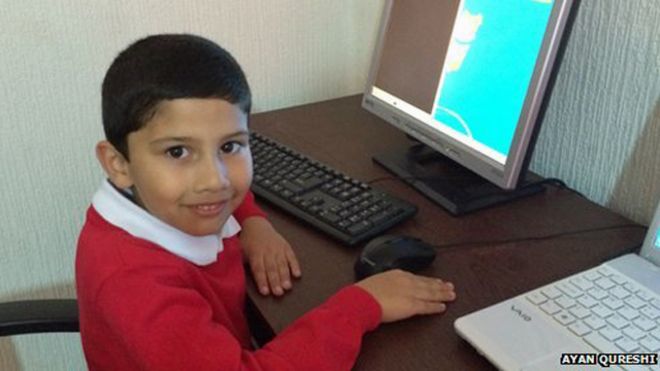As the popularity of BlackBerry Ltd (NASDAQ:BBRY)‘s devices is declining in the Smartphone industry, the company is focusing more on the expansion of its mobile-security arsenal. It is making all the efforts it can for selling its mobile security software on the rival’s devices. BlackBerry has introduced a number of upgrades in its mobile security portfolio. The new security upgrades will protect devices using operating systems of Microsoft Corporation (NASDAQ:MSFT), Apple Inc. (NASDAQ:AAPL) and Google Inc (NASDAQ:GOOGL).
Shifting focus
John Chen, the CEO of BlackBerry Ltd (NASDAQ:BBRY), focus is on mobile security segment and intends to achieve $500 million as annual software revenues. The segment of security arsenal provides specially designed security software to government agencies and business. The software helps to deal with hacking attacks and malicious software that tries to steal confidential information from employees Smartphones.
The new association
BlackBerry Ltd (NASDAQ:BBRY) has entered into a new partnership with Samsung Electronics to boost its mobile-security portfolio. As part of the new deal, Samsung will provide key products of BlackBerry’s security software to enterprise customers. It is specially meant to be installed in the employees Galaxy Smartphones and tablets that operate on Android’s operating system.
The competition
The competition from Apple Inc. (NASDAQ:AAPL)’s iPhones and Google Inc (NASDAQ:GOOGL)’s Android phones resulted in the downfall of BlackBerry. The touch-screen technology of iPhone and other features made the Apple devices popular among masses. BlackBerry devices lost the popularity due to the physical keyboards on its mobile phones. Also, BlackBerry Ltd (NASDAQ:BBRY) failed to take speedy measures to develop a system to get outside apps on its devices.
Comeback efforts
BlackBerry Ltd (NASDAQ:BBRY) tried to make a comeback by new version of its operating system in year 2012, but failed to mark its presence on consumer’s mind. As the customers are enamored with Android and Apple Inc. (NASDAQ:
AAPL)’s devices, Chen is shifting its focus on security-arsenal portfolio to improve the financial performance of BlackBerry in the coming quarters.
| (1) BUY | 0 | 0 | 2 | 2 |
| (2) OUTPERFORM | 1 | 1 | 2 | 2 |
| (3) HOLD | 25 | 26 | 23 | 23 |
| (4) UNDERPERFORM | 10 | 10 | 10 | 10 |
| (5) SELL | 2 | 2 | 2 | 2 |
| No Opinion | 0 | 0 | 0 | 0 |
|
| Mean Rating | 3.34 | 3.33 | 3.21 | 3.21 |
BlackBerry Limited, formerly Research In Motion Limited, incorporated on March 7, 1984, is a designer, manufacturer and marketer of wireless solutions for the worldwide mobile communications market. Through the development of integrated hardware, software and services, it provides platforms and solutions for seamless access to information, including e-mail, voice, instant messaging, short message service (SMS), Internet and intranet-based applications and browsing. The Company’s technology also enables an array of third party developers and manufacturers to enhance their products and services through software development kits, wireless connectivity to data and third-party support programs. Its portfolio of products, services and embedded technologies are used by thousands of organizations and millions of consumers around the world and include the BlackBerry wireless solution, the RIM Wireless Handheld product line, the BlackBerry PlayBook tablet, software development tools and other software and hardware. Effective May 31, 2013, BlackBerry Ltd acquired Scroon SA. In September 2014, the Company acquired Movirtu, provider of virtual identity solutions for mobile operators that allows multiple numbers to be active on single device.
On March 25, 2011, the Company purchased 100% of the shares of a company whose technology is being incorporated into the Company’s developer tools. On April 26, 2011, the Company purchased certain assets of a company whose acquired technologies will be incorporated into the Company’s products. In June 2011, the Company acquired Scoreloop. On March 8, 2012, the Company acquired Paratek Microwave Inc. During the fiscal year ended March 3, 2012 (fiscal 2012), the Company purchased 100% interests of a company, whose technology will be incorporated into its technology; whose technology offers cloud-based services for storing, sharing, accessing and organizing digital content on mobile devices; whose technology is being incorporated into an application on the BlackBerry PlayBook tablet; whose technology offers a customizable and cross-platform social mobile gaming developer tool kit, and whose technology will provide a multi-platform BlackBerry Enterprise Solution for managing and securing mobile devices for enterprises and government organizations.
On April 24, 2012, the Company launched BlackBerry 7 smartphone, the BlackBerry Curve 9220, for customers in Indonesia. April 18, 2012, it launched BlackBerry 7 smartphone, the BlackBerry Curve 9220, for customers in India. On April 17, 2012, it announced availability of the BlackBerry Bold 9790 smartphone in Spain. On April 3, 2012, it launched BlackBerry Mobile Fusion, and launched four BlackBerry smartphones powered by the BlackBerry 7 operating system (OS) in Cambodia, which included BlackBerry Bold 9900, BlackBerry Bold 9790, BlackBerry Curve 9360 and BlackBerry Curve 9380. On April 2, 2012, it announced the availability of BlackBerry App World, the official application store for BlackBerry smartphones in Brunei, and it announced availability of the BlackBerry Bold 9790 and BlackBerry Curve 9380 smartphones for Cell C customers in South Africa. On March 27, 2012, it launched of the BlackBerry solution in Benin Republic. On March 15, 2012, it launched of BlackBerry services in China. On March 7, 2012, it launched the BlackBerry service in Angola.
The Company’s primary revenue stream is generated by the BlackBerry wireless solution, consists of smartphones and tablets, service and software. BlackBerry service is provided through a combination of its global BlackBerry Infrastructure and the wireless networks of its carrier partners. On February 21, 2012, it released the BlackBerry PlayBook OS 2.0 software. It generates hardware revenues from sales, primarily to carriers and distributors. During fiscal 2012, the Company launched the wireless fidelity (WiFi)-enabled BlackBerry PlayBook tablet in 44 markets around the world. On July 21, 2011, the BlackBerry PlayBook tablet received Federal Information Processing Standard 140-2 certification.
BlackBerry Smartphones and Tablets
BlackBerry smartphones uses wireless, push-based technology that delivers data to mobile users’ business and consumer applications. BlackBerry smartphones integrate messaging including instant messaging, email and SMS; voice calling; Webkit browser; multimedia capabilities; calendar, and other applications. During fiscal 2012, it introduced 10 new smartphones and launched software updates to both its smartphone and tablet platforms. BlackBerry smartphones are available from hundreds of carriers and indirect channels, through a range of distribution partners, and are designed to operate on a variety of carrier networks, including HSPA/HSPA+/UMTS, GSM/GPRS/EDGE, CDMA/Ev-DO, and iDEN.
During fiscal 2012, its BlackBerry smartphone and tablet portfolio included BlackBerry Bold series, BlackBerry Torch series, BlackBerry Curve series and The BlackBerry PlayBook tablet. Its BlackBerry Bold series includes BlackBerry Bold 9900 and 9930 and BlackBerry Bold 9790. The Company’s BlackBerry Torch series include BlackBerry Torch 9810 and All-Touch BlackBerry Torch 9850 and 9860. The Company’s BlackBerry Curve series include BlackBerry Curve 9350/9360/9370 and All-Touch BlackBerry Curve 9380 Smartphone. The BlackBerry PlayBook tablet features the BlackBerry PlayBook OS 2.0. The BlackBerry PlayBook offers a seven-inch high definition display, a dual core one gigahertz processor, dual high definition cameras, multitasking and a Web browsing.
BlackBerry Enterprise Solution
BlackBerry Enterprise Server is software that acts as the centralized link between BlackBerry smartphones, enterprise systems, business applications and wireless networks. BlackBerry Enterprise Server integrates with enterprise messaging systems including Microsoft Exchange, IBM Lotus Domino and Novell GroupWise to synchronize with BlackBerry smartphones to provide mobile users with wireless access to e-mail, calendar, contacts, notes and tasks. It also provides access to business applications and enterprise systems. In addition, it provides security features and offers administrative tools. BlackBerry Enterprise Server is required for certain other enterprise solutions, such as BlackBerry Mobile Voice System (for bringing desk phone functionality to BlackBerry smartphones); BlackBerry Clients for Microsoft Office Communications Server, IBM Lotus Sametime and Novell GroupWise Messenger (for enterprise instant messaging); IBM Lotus Connections (for enterprise social networking); IBM Lotus Quickr (for document sharing and collaboration); and Chalk Pushcast Software (for corporate podcasting).
The Company’s BlackBerry Mobile Fusion provides a Web-based interface that allows enterprises to provision, audit, and protect mobile devices including BlackBerry smartphones, BlackBerry PlayBook tablets, and devices that use iOS and Android. BlackBerry Balance helps enterprises support the Bring Your Own Device (BYOD) trend. BlackBerry Enterprise Server Express is free server software that synchronizes BlackBerry smartphones with Microsoft Exchange or Microsoft Windows Small Business Server. BlackBerry Enterprise Server Express works with Microsoft Exchange 2010, 2007 and 2003 and Microsoft Windows Small Business Server 2008 and 2003 to provide users with wireless access to e-mail, calendar, contacts, notes and tasks, as well as other business applications and enterprise systems behind the firewall.
BlackBerry Mobile Voice System (BlackBerry MVS) allows organizations to converge office desk phones and BlackBerry smartphones. BlackBerry MVS is consists of three components: BlackBerry MVS Client, BlackBerry MVS Services, and BlackBerry MVS Server. It unifies fixed and mobile voice communications. Hosted BlackBerry services bring the BlackBerry Enterprise Server features, functionality, and security capabilities in a package that is managed for end users. Hosted BlackBerry services are conveniently handled and supported by a BlackBerry certified partner from the BlackBerry Alliance Program, giving small and medium -sized enterprise (SME) enterprises the support and convenience they need.
Service
The Company generates service revenues from billings to its BlackBerry subscriber account base. It generates service revenues primarily from a monthly infrastructure access fee charged to a carrier or reseller, which the carrier or reseller in turn bills the BlackBerry subscriber.
BlackBerry Technical Support Services
BlackBerry Technical Support Services are a suite of annual technical support and software maintenance programs. The programs are designed to meet the customer’s BlackBerry support needs by offering a contact for BlackBerry wireless solution technical support directly from the Company.
Non-Warranty Repairs
The Company generates revenue from its repair and maintenance program for BlackBerry smartphones that are returned to it by the carrier, the reseller, or the customer. It generates revenue for repair after the expiration of the contractual warranty period.
The Company competes with Apple Inc., Microsoft Inc., Nokia Corporation, Dell, Inc., Fujitsu Limited, General Dynamics Corporation, Hitachi America, Ltd., HTC Corporation, Huawei Technologies Co. Ltd., LG Electronics Mobile Communications Company, Mitsubishi Corporation, Motorola Mobility Holdings, Inc., NEC Corporation, Samsung Electronics Co., Ltd., Sharp Corporation, Sony Corporation, ZTE Corporation, IBM Corporation, Microsoft Corporation, Notify Technology Corporation, Openwave Systems Inc., Seven Networks, Inc., Sybase, Inc. and Good Technologies.




 10:25
10:25
 study
study













